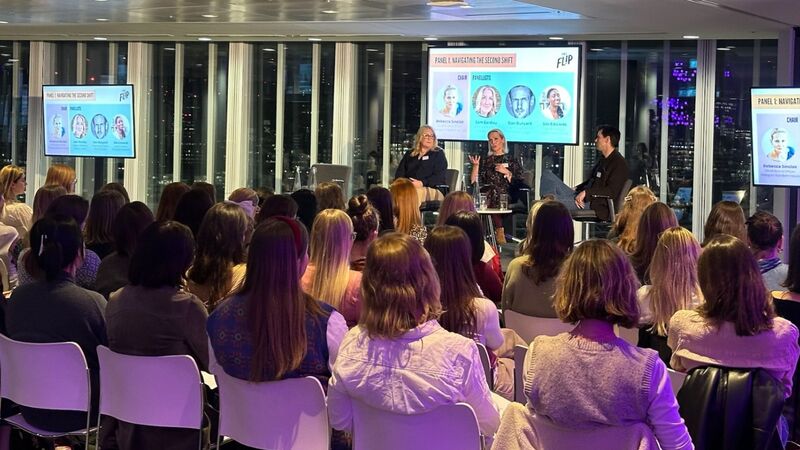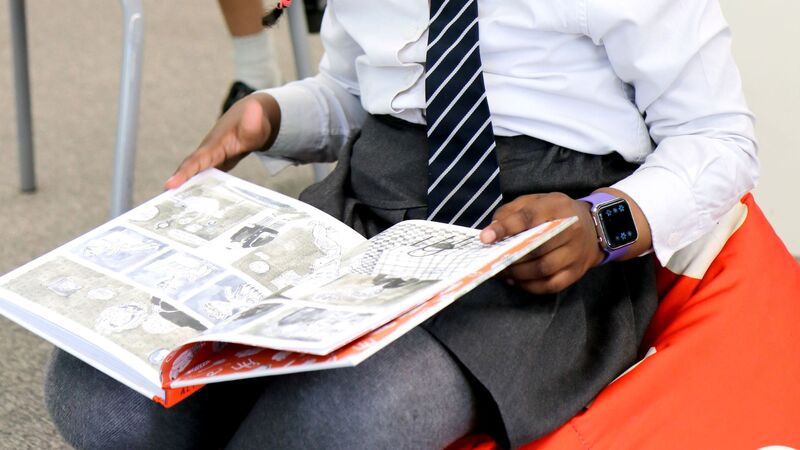You are viewing your 1 free article this month. Login to read more articles.
Home-working has put spotlight on inequalities within industry, staffers say
The publishing industry has revealed frustration over how home-working has exposed disparity between the wealth of some junior and senior members of staff.
The Bookseller’s survey marking the one-year-anniversary of UK lockdown has attempted to gauge how employees have fared over the last extraordinary year, showing a high level of mental exhaustion suffered by many in the trade, as reported on Friday (19th March). Another significant area of concern was how people felt lockdown had affected equality in publishing in regards to race, gender, class, disability, sexuality and location, with around 95% of the 78 respondents answered this question, making it one of the most popular survey questions.
Generally people suggested that the home working set-up for office workers had helped level the playing field, puncturing the London bubble and opening up the business to more disabled people. “It’s helped to break down the tired idea that you need to be physically based in London to work in publishing,” an academic publisher said. “With more opportunities for remote working to be genuinely embraced, widespread, I hope this will mean prospective publishing candidates won’t be dissuaded from applying for jobs based on location and their disability/access needs.” An author wrote: “This is an opportunity for publishers to expand beyond the London bubble.” Another publisher said: “It has been a positive [development] for disabled people. Finally, they can work from home as it can be done.”
However, one respondent was more cautious about progress in this area. “Honestly, if the latest crop of job adverts is anything to go by, it's given false hope of geographical diversification,” the Scottish bookseller said. “There's no reason office work has to be done in Central London offices, but you wouldn't know it from opening The Bookseller's jobs page every week and seeing LONDON LONDON LONDON. And salary indications still very much the exception.”
There was also the concern from some that the economic uncertainty from the pandemic had squeezed job openings so there were fewer opportunities to improve diversity. “[It’s impacted inequality] negatively,” a Wiley staffer said. “We've seen far fewer jobs be advertised within our company, so fewer opportunities for a diverse cohort of people to be brought into the company.” This was echoed by another academic press employee, who responded: “[Equality has been impacted] negatively for sure... Fewer opportunities to apply due to job freezes."
Some respondents reported that women and in particularly mothers were disproportionately affected by lockdown, supported by recent data from the Office of National Statistics. “Homeschooling was mostly left to mums which negatively impacted working hours,” a bookseller wrote. A staffer at a major publishing house wrote of “women picking up slack at home and with home-schooling with no support from their companies”.
A very large number of respondents mentioned how the lockdown measures had made inequality in publishing more obvious, particularly in relation to wealth, and how much more challenging home working has been for those on junior salaries in shared accommodation. The strength of feeling suggests companies need to be more supportive of those who may struggle for space and quiet at home as Zoom has powerfully contrasted between the haves and have-nots. “Lockdown revealed people working in cramped spaces, sitting on beds or moving around common areas in shared housing to get somewhere quiet for a call,” one publisher wrote. “Senior staff did not seem to understand that people might have no room, let alone no money, for a desk or table, an office chair, a monitor. And they tend to forget that, unlike themselves, people live in accommodation without a garden (or even the tennis court we heard about on a call) and in areas that do not have access to large parks and green space.”
A publisher “somewhat struggling after a long and tough year” said: “The wealth disparity has become even more obvious in my company while working from home. In team meetings I see my senior colleague's beautiful houses and separate offices, while me and other junior colleagues are doing meetings in our kitchens while housemates/partners are working in the same room. Lockdown has made inequality even more obvious, and made working situations for those of us on lower incomes very hard.”
A Hachette employee hopes that the exposure of mass home working could cause change: “Rather than having a direct effect, I think this past year has forced conversations into the open that were previously rumblings within the industry... I think this has been a big wake-up call to the privileges old-school publishing has traditionally enjoyed, and hopefully things will change hereafter.”
However some worry that removing the office from the equation could deter those with less comfortable living conditions from entering the trade. An author said: “It has increased inequality in terms of work environment: before everyone worked in the same office, now depending on each individual's personal situation their ‘office space’—if any!—is very different and that has affected mental health and in the long term, might discourage the less privileged to apply or work in publishing.”
Despite increased awareness, there remains a concern amongst many that there is too much talk and not enough action on equality. A bookseller from Waterstones said: “It’s definitely raised awareness, however I worry that all the action will be performative and won’t address the root problems.” A publisher agreed: “It's definitely being highlighted more, but honestly I can't see much change happening.”
This frustration was mentioned in particular in regards to race. “On race/class I hope all of the soul searching and talk that has happened recently will result in action, but it's too early to say whether it will,” a bookseller wrote. Some spoke of how the Black Lives Matter (BLM) movement last summer had the potential to change things. “The most obvious event was BLM: there's been a hyped attempt to improve things but I'm not sure if it's all just chatter,” a publishing worker said. “Bureaucracy and systematic racism and inequality so entrenched.”
However a few were more positive including one publisher who wrote: “The BLM movement has brought diversity into the spotlight of publishing. I am lucky to work for a publishing house that is continuing to take this matter seriously even after things have died down.”
A few respondents also pointed out how home working has removed a lot of formal and informal learning opportunities for those in junior roles. “The move to home working is good, because it should make things more accessible to the industry, but I remain concerned the people being hired for these roles (particularly at entry level) are people who are moving within the industry and are seen as safer, more experienced bets who will require less training,” a publisher wrote. “The suspension of work experience and internship programs is also concerning—young people learn so much from just being in an office environment and seeing how things work.” Another publisher agreed that lockdown “has decreased our capacity to hold work placements due to being based remotely”.
One publisher raised the issue of retention as opposed to just access into the trade. A “tired” Springer Nature employee wrote: “I would like to hope that we're seeing more awareness of the need to not only diversify the entry level but also work on retention of different groups, but I'm not sure that we've really seen concrete change yet.”
Ultimately this survey has only scratched the surface on the thorny issue of equality in publishing—there are so many consequences of the pandemic still to be seen and there could never be a straight-forward response to the question we asked. “I don't think there are easy answers here,” one PRH employee wrote. “There's a lot of work to do and many things to address. I hope the promises made and conversations continue and real change is on the horizon.”

















